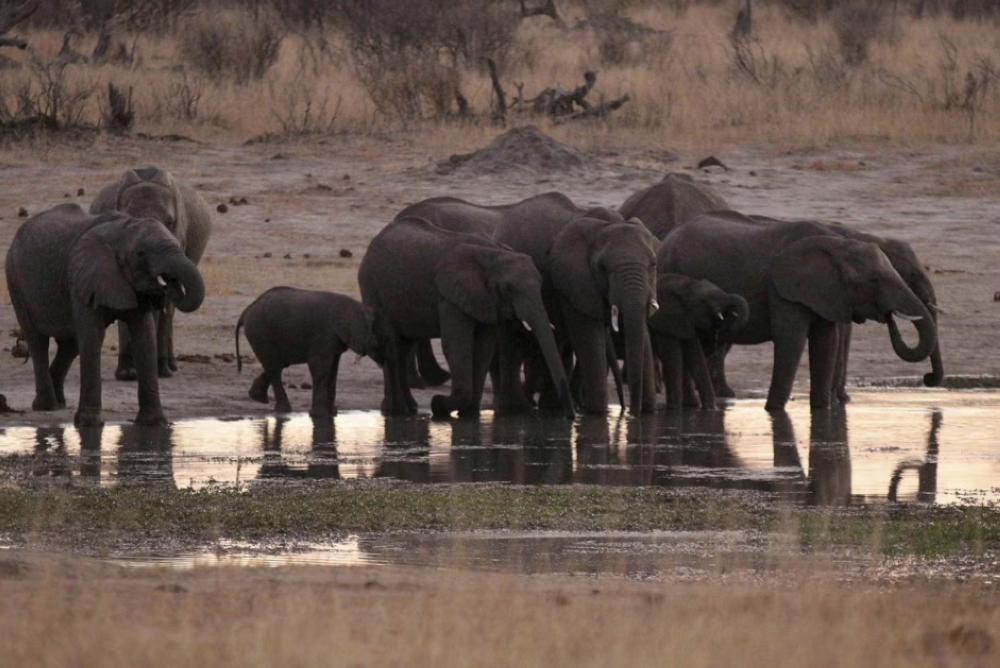Zimbabwe will cull 200 elephants as it faces an unprecedented drought that has led to food shortages, a move that will also allow it to tackle a ballooning population of the animals, the country's wildlife authority said Friday.
The country has "more elephants than it needed", Zimbabwe's environment minister said in parliament on Wednesday, adding that the government had instructed the Zimbabwe Parks and Wildlife Authority (ZimParks) to begin the culling process.
The 200 elephants will be hunted in areas where they have clashed with humans, including Hwange, home of Zimbabwe's largest natural reserve, ZimParks director general Fulton Mangwanya told AFP.
Zimbabwe is home to an estimated 100,000 elephants, and has the second-biggest elephant population in the world after Botswana.
Thanks to conservation efforts, Hwange is home to 65,000 of the animals, more than four times its capacity, according to ZimParks. Zimbabwe last culled elephants in 1988.
Neighbouring Namibia said this month that it had already killed 160 wildlife in a planned cull of more than 700 animals, including 83 elephants, to cope with its worst drought in decades.
Zimbabwe and Namibia are among a swathe of countries in southern Africa that have declared a state of emergency because of drought.
About 42 percent of Zimbabweans live in poverty, according to UN estimates, and authorities say about six million will require food assistance during the November to March lean season, when food is scarcest.
The move to hunt the elephants for food was criticised by some, not least because the animals are a major draw for tourists.
"Government must have more sustainable eco-friendly methods to dealing with drought without affecting tourism," said Farai Maguwu, director of the nonprofit Centre for Natural Resource Governance.
"They risk turning away tourists on ethical grounds. The elephants are more profitable alive than dead," he said.
"We have shown that we are poor custodians of natural resources and our appetite for ill-gotten wealth knows no bounds, so this must be stopped because it is unethical."
But Chris Brown, a conservationist and CEO of the Namibian Chamber of Environment, said that "elephants have a devastating effect on habitat if they are allowed to increase continually, exponentially".
"They really damage ecosystems and habitats, and they have a huge impact on other species which are less iconic and therefore matter less in the eyes of the eurocentric, urban armchair conservation people," he said.
"Those species matter as much as elephants."
Namibia's cull of elephants has been condemned by conservationists and the animal rights group PETA as short-sighted, cruel and ineffective.
But the government said the 83 to be culled would be only a small fraction of the estimated 20,000 elephants in the arid country, and would relieve pressure on grazing and water supplies.

A herd of elephants at a water hole in Zimbabwe's Hwange National Park. File picture/Reuters
